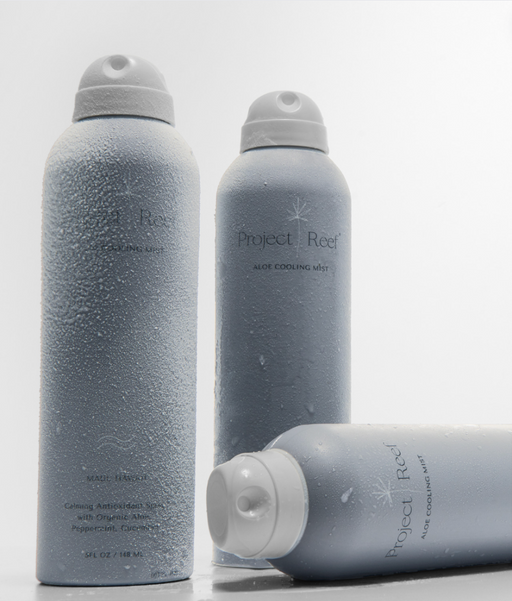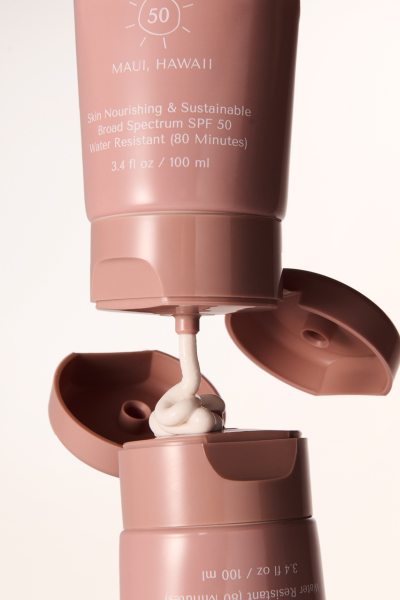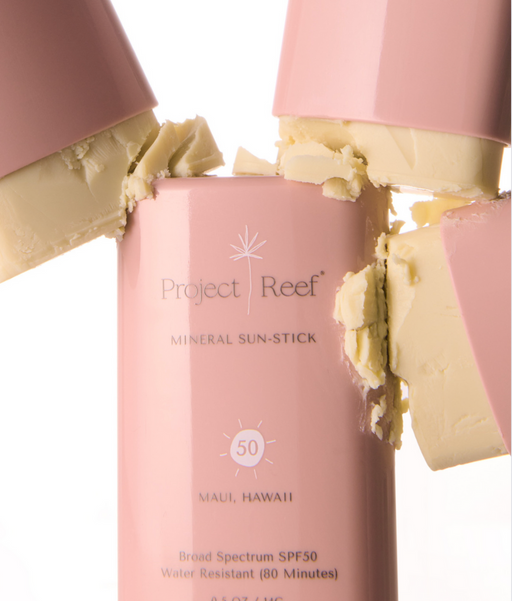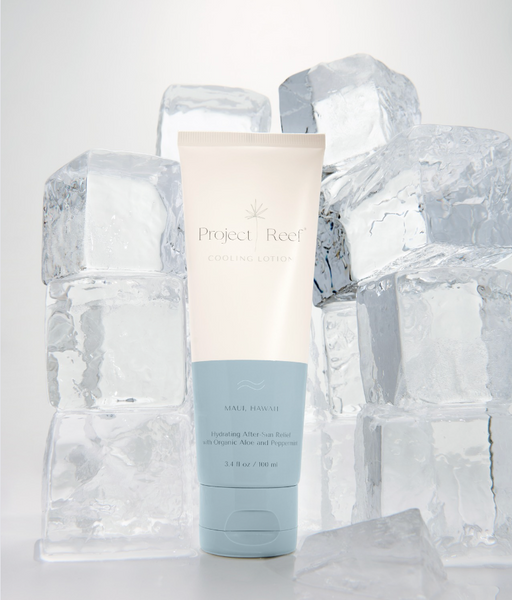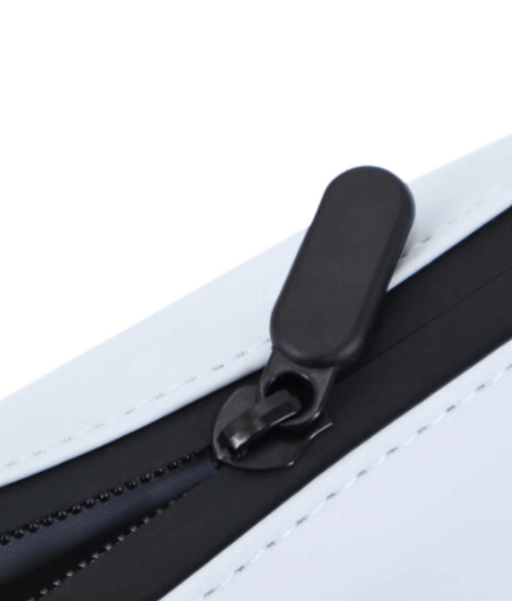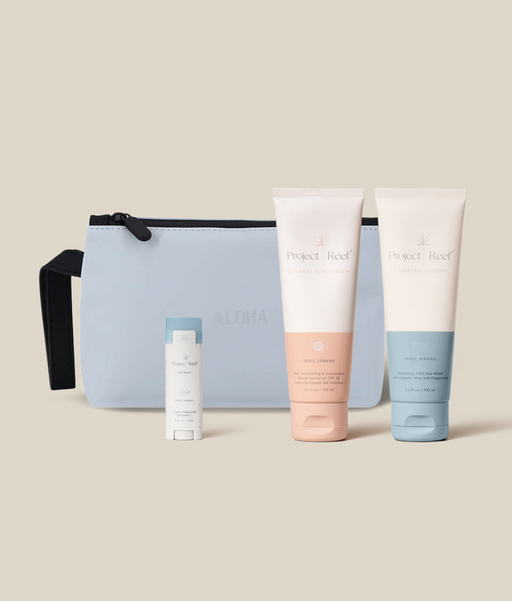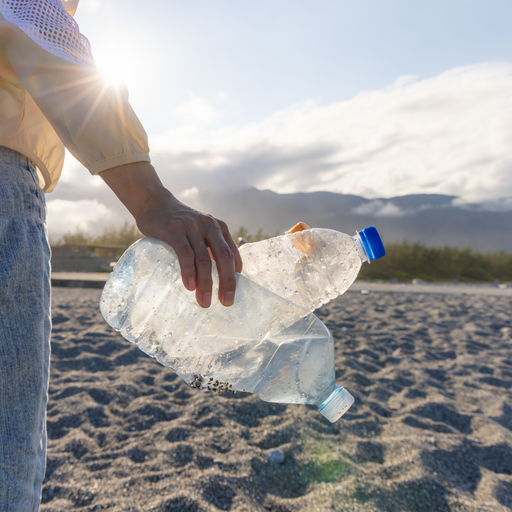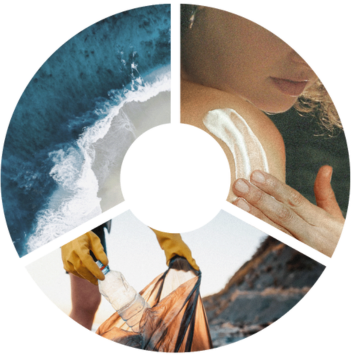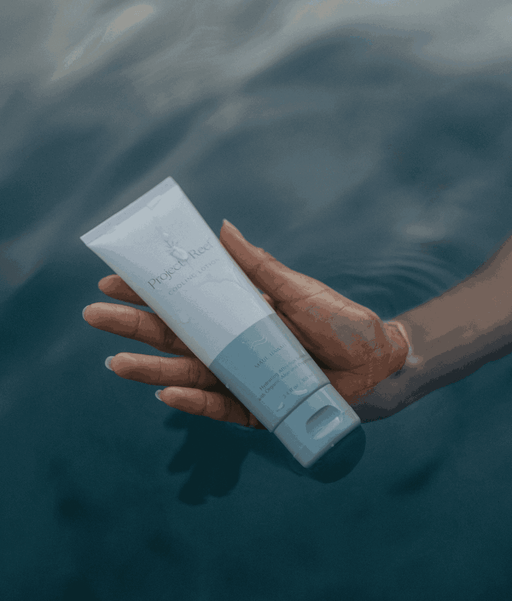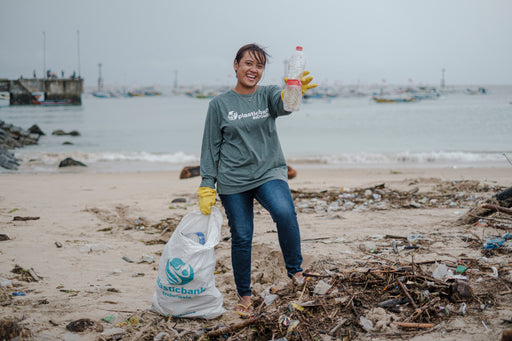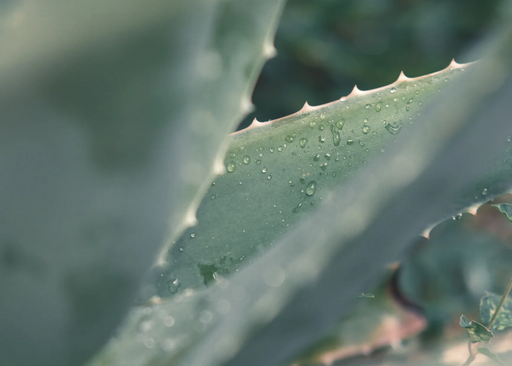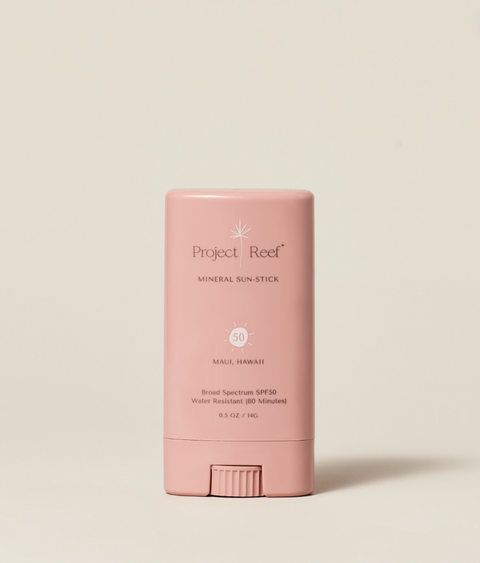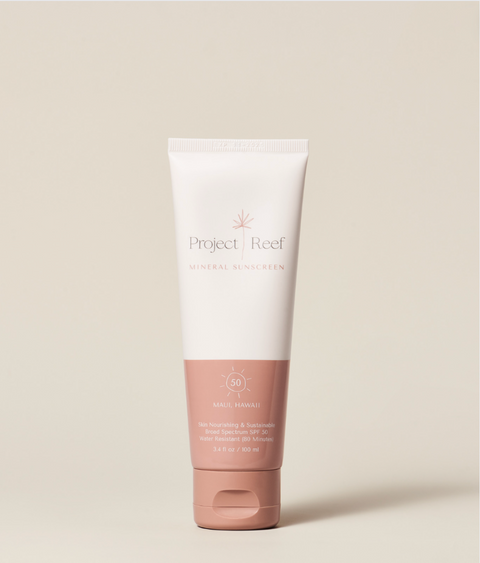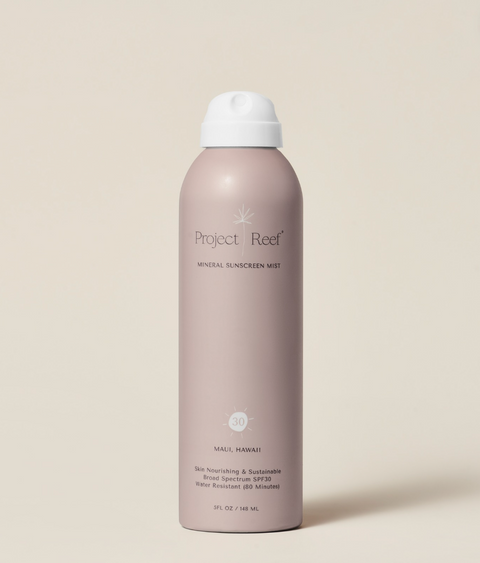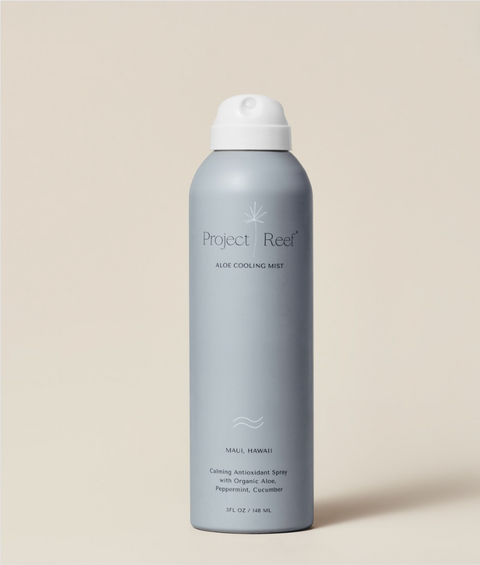At Project Reef, we get asked what makes a sunscreen “reef safe” and how to identify one?
For starters, reef-safe sunscreens are formulated without harmful chemicals such as oxybenzone and octinoxate, which are known to damage coral reefs and marine ecosystems and even cause hormonal imbalances in women.
In fact, locations such as Hawaii have banned non-reef-safe sunscreen companies like Supergoop!, Vacation, and Sun Bum. The ingredients are harmful enough to reefs that they are banned and illegal in the following locations: Hawaii, Key West, Virgin Islands, Bonaire, Palau, Aruba, French Polynesia, Tulum, Cozumel, Thailand, The Maldives, and the list goes on.
Why Do Brands Use Non-Reef-Safe Ingredients?
Traditional sunscreens like Coppertone, Neutrogena, and La Roche typically use chemical UV filters because they offer several practical advantages:
Cost and Availability: Chemical ingredients are often cheaper, making them an attractive option for large-scale production and lower-cost products.
Cosmetic Appeal: Chemical sunscreens are typically transparent on the skin, avoiding the white cast that some mineral sunscreens with zinc oxide or titanium dioxide can leave.
Formulation Flexibility: Chemical filters allow for lighter, more spreadable formulas, including gels, sprays, and lotions that are easier to apply and blend into the skin.
Higher SPF Ratings: Chemical sunscreens can more easily achieve high SPF values compared to mineral sunscreens.
Why Do Reef-Safe Sunscreens Matter?
The chemicals in mass-market sunscreens are highly toxic and kill marine ecosystems - full stop. Many studies such as the Archives of Environmental Contamination and Toxicology detail how these chemicals damage and kill not only coral reefs, but many marine ecosystems in the following ways:
Deformities: Abnormal growth due to DNA damage.
Abnormal growth: Abnormal growth due to endocrine disruption.
Death: Coral, mangroves, and other underwater plants metabolize these chemicals in a way that creates toxic compounds, killing them in the process.
What qualifies a sunscreen as reef safe?
To qualify as reef-safe, a product must not contain any of the below ingredients and should be avoided. They are not safe for reefs and can kill them:
- Oxybenzone (Benzophenone-3) (Most Common)
- Octinoxate (Ethylhexyl Methoxycinnamate) (Second most common)
- Octocrylene
- Homosalate
- 4-Methylbenzylidene Camphor (4-MBC)
- PABA (Aminobenzoic Acid)
- Parabens (e.g., Methylparaben, Butylparaben)
- Triclosan
- Nano Zinc Oxide (Non-nano is reef-safe)
- Nano Titanium Dioxide (Non-nano is reef-safe)
Microplastics or Plastic Beads
Example of a Non-Reef-Safe Sunscreen
As an example, Vacation sells non-reef-safe sunscreens. Their 'classic' product contains 4 non-reef-safe ingredients, which are banned in Hawaii.
The image below shows that their ingredient list contains the 3 of the most common non-reef-safe sunscreen ingredients: Homosalate, Octisalate, and Octocrylene.

What Are the Best Reef Safe Sunscreen Brands?
To make your search easier, below is a list of the best reef safe sunscreens that only sell reef-safe sunscreens and are safe for coral reefs. These brands use a mineral-based foundation to block UV rays, which is safe for reefs.
- Project Reef
- All good
- Kokua Sun Care
- Goddess Garden
- Stream2Sea

Sunscreen Companies That are Not Reef Safe
Below is a list of companies that sell products containing non-reef-safe ingredients such as Oxybenzone, Octinoxate, and Homosalate.
List of companies:
- Alba
- Australian Gold
- Aveeno
- Banana Boat
- BullFrog
Coppertone
- CVS Health
- Equate
- Hawaiian Tropic
- La Roche-Posay
Neutrogena
- Panama Jack
- Sun Bum
- Supergoop!
- Vacation
- Walgreens

Conclusion
In conclusion, keep these companies honest in selling non-reef-safe sunscreen. You cannot be on both sides of the fence when selling sunscreen.
Not only are non-reef-safe sunscreens illegal to bring into many countries, they are killing our marine ecosystems, coral reefs, and causing hormonal imbalances in women all over the world.
Join me at Project Reef and buy only Reef Safe Sunscreen.
FAQs About Reef Safe Sunscreen
Q: Is reef safe sunscreen as effective as regular sunscreen?
A: Yes, mineral-based sunscreens provide broad-spectrum protection by physically blocking UVA and UVB rays, making them just as effective as chemical sunscreens.
Q: Can reef safe sunscreen be used on children?
A: Absolutely! Many reef safe sunscreens are gentle on sensitive skin and safe for kids. Look for non-nano zinc oxide formulas for the safest option.
Q: How do I know if a sunscreen is safe for the ocean?
A: Check the active ingredients and avoid the harmful chemicals listed above. Also, choose products from reputable brands with a focus on eco-friendly practices.
